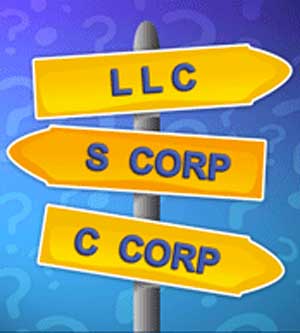As the dust settles on the first tax season under the new Obamacare laws, many closely held business owners are understanding the impact of the increased Medicare tax on earned income and the new tax on net investment income of high-income individuals. The changes from the numerous tax law bills create a planning opportunity for closely held businesses and their owners to re-evaluate the limited liability company entity selection.
The increase in taxes came from a variety of code changes. Individual top tax rates increased from 35 percent to 39.6 percent. Medicare tax on self-employment income and compensation increased from 2.9 percent to 3.8 percent on income exceeding $250,000 for married individuals filing jointly and $200,000 for single taxpayers. The Health Care and Education Reconciliation Act also added a new 3.8 percent tax on net investment income such as interest, dividends, annuities, rents, royalties and capital gains. These increased rates, in connection with reinstated phase-out of personal exemptions and disallowance of itemized deductions, reduced the year-end take-home amount of small business owners.
The typical entity formation options for small businesses are partnerships, limited liability companies and S corporations. While the taxation of these business forms is similar, the differences for active business owners under the new laws could result in potential savings.
For partnerships and limited liability companies, the taxation depends on the activity of the owner and whether the owner is treated as a limited partner for purposes of self-employment tax. Partners will be subject to the 3.8 percent net investment income to the extent that the partnership income is from a passive activity with respect to the partner.
The determination of passive activity for net investment income tax is the same as the passive activity rules. In general, the test requires that a partner materially participate in an activity. There are a number of ways of satisfying the material participation requirement, including:
- 500 hours of participation
- Being substantially the only participant
- Participating for at least 100 hours, as long as no other individual participates more
- Participating for at least 100 hours in the activity and participating in all “significant participation” activities for at least 500 total hours
Thus, for the passive partner, the net investment tax applies to the partner’s entire distributive share or partnership income. Alternatively, the active partner would not be subject to the net investment income tax except to the extent the partner receives a guaranteed payment. However participation may subject the partner to self-employment tax.
Generally, self-employment income will include a partner’s entire distributive share of income from the partnership. One exception applies to limited partners whose distributive share to the extent of any guaranteed payments will be excluded from self-employment tax. A sparse definition of limited partner provided in proposed regulations from 1997 that were never finalized defines a limited partner as an individual who (1) has personal liability for the partnership’s debts, (2) has authority to contract for the partnership, or (3) participates in the partnership’s business more than 500 hours in a year.
A partner participating more than 500 hours, but who would otherwise qualify as a limited partner and who owns only one class of partnership interest, may be treated as a limited partner if at least 20 percent of the remaining partnership interests are held by partners with identical rights and obligations. Service partners in a service partnership are not provided any exceptions for treatment as a limited partner.
The dilemma for the actively participating limited partner or LLC member is that the level of participation required to avoid the net investment income tax will likely disqualify the limited partner or LLC member from being a limited partner under the self-employment tax. Although taxed similarly to partnerships and LLCs, an active S corporation shareholder may be able to alleviate some of the tax impact of the net investment income tax and self-employment tax.
S corporation shareholders will be subject to the net investment income tax on the entire distributive share of S corporation income to the extent the income is derived from passive activity or is investment income. The same active participation rules under the passive activity rules applies to S corporation owners and make a materially participating shareholder’s entire distributive share of the S corporation’s income not subject to the net investment income tax.
An S corporation shareholder-employee has the unique ability to separate compensation for services from the shareholder’s distributive share of the corporation’s income. A shareholder-employee of an S corporation is subject to self-employment taxes on compensation paid to the shareholder-employee. However, unlike LLCs and partnerships, the self-employment tax does not apply to an S corporation shareholder’s distributive share of the corporation’s income. Thus, an active S corporation shareholder-employee may receive a reasonable salary and control the amount subject to self-employment tax.
Entity selection is dependent on various business and tax factors, but active business owners should re-evaluate entity selection after the implementation of the net investment income tax. The materially participating shareholder may avoid both net investment income tax and self-employment tax on the shareholder’s distributive share of income. Entrepreneurs determining the structure on new entities should consider the S corporation structure and the participation of its members.
——————
Cory Birkhauser, J.D., LL.M. is a Senior Tax Accountant at Haskell & White, LLP, specializing in real estate, trusts and estates. One of the largest independently owned accounting, auditing and tax consulting firms in Southern California, Haskell & White services public and private middle-market companies in a broad range of industries including real estate, manufacturing, distribution, life science, technology and retail. The firm provides solid expertise and services to its clients in the tax and audit disciplines, including advising SEC registrants and consulting on mergers and acquisitions.
Thanks for reading CPA Practice Advisor!
Subscribe Already registered? Log In
Need more information? Read the FAQs
Tags: Benefits, Small Business




